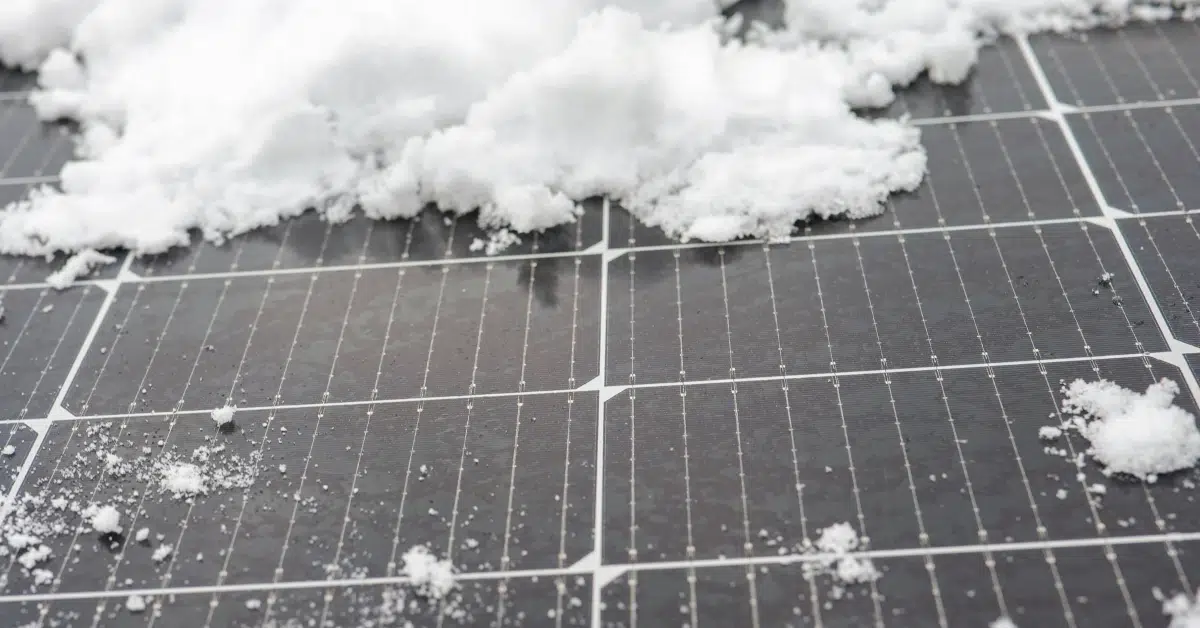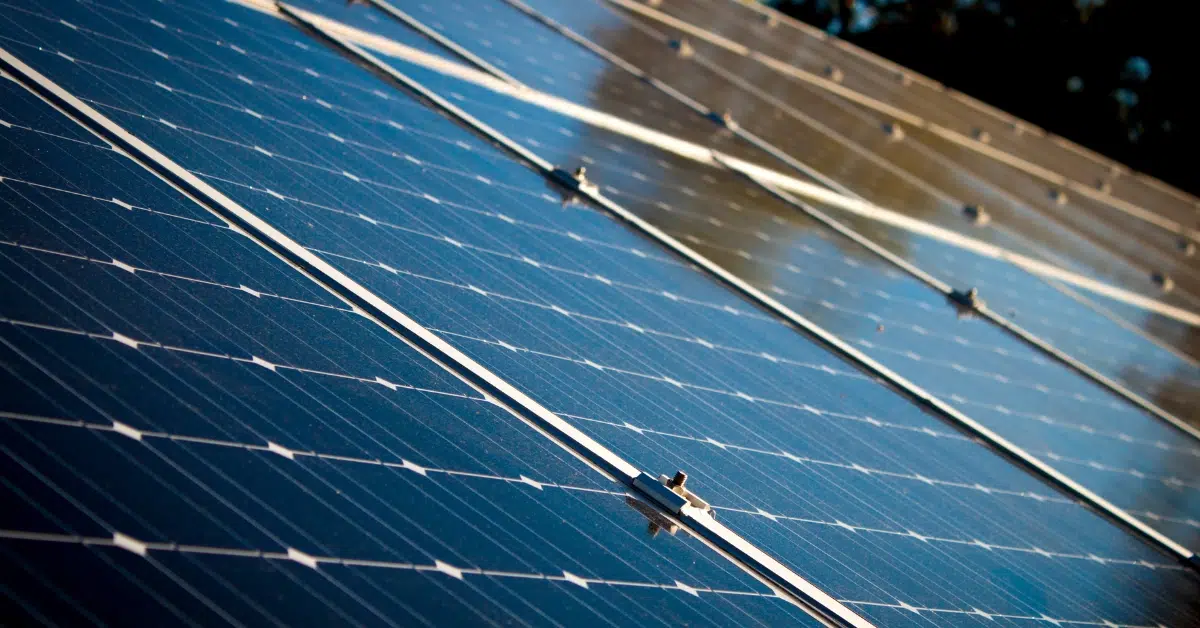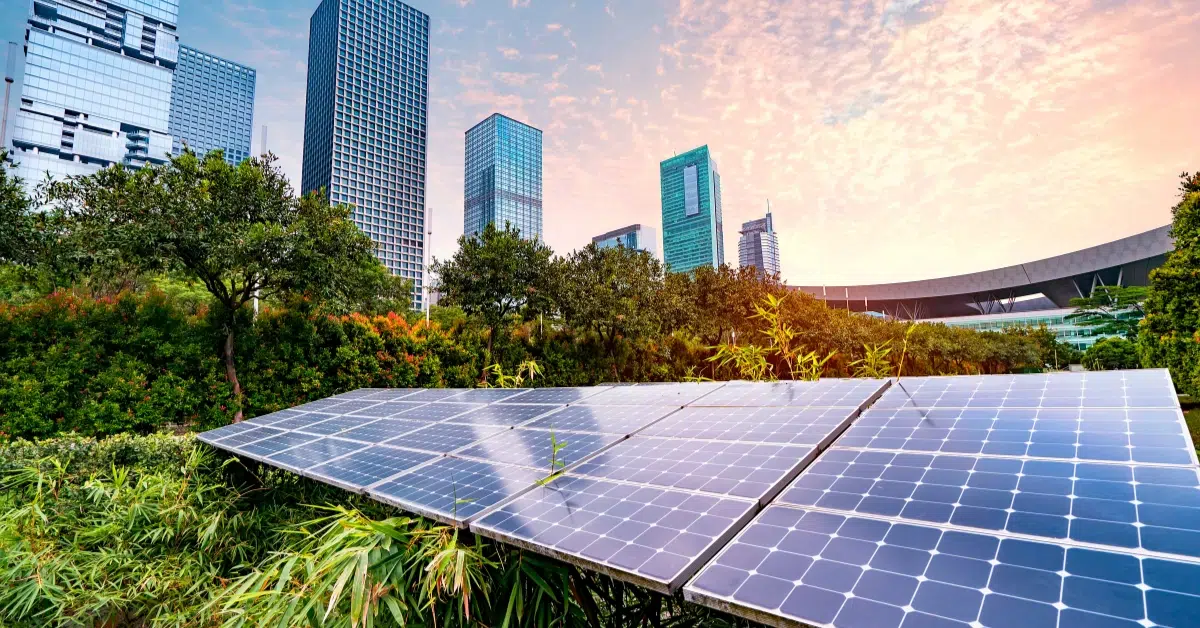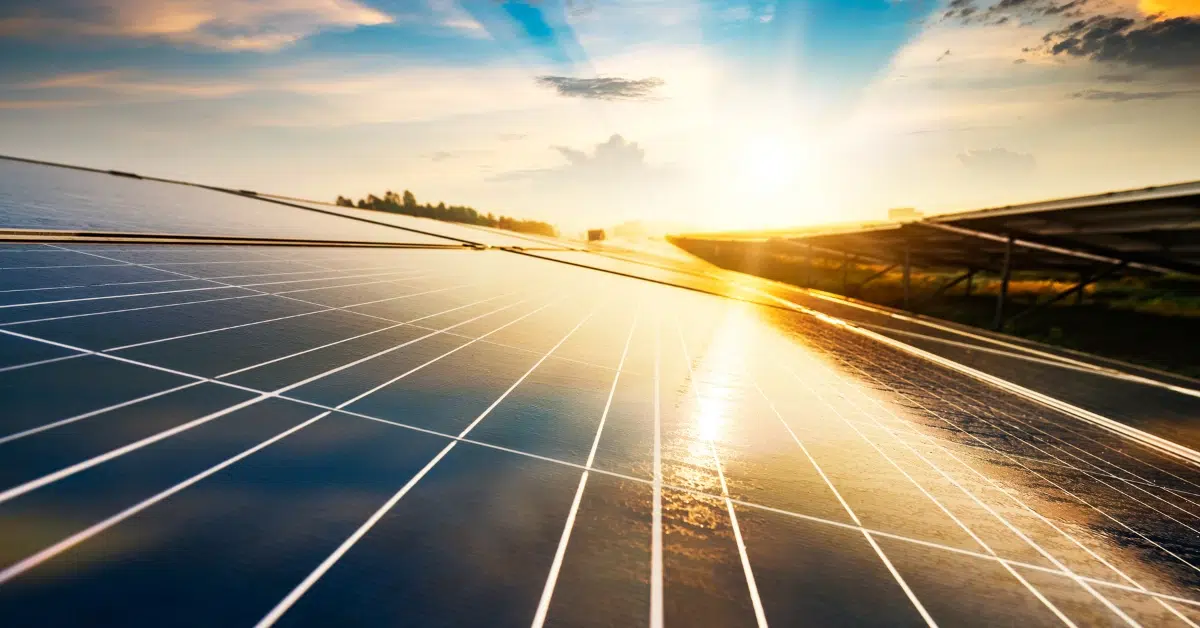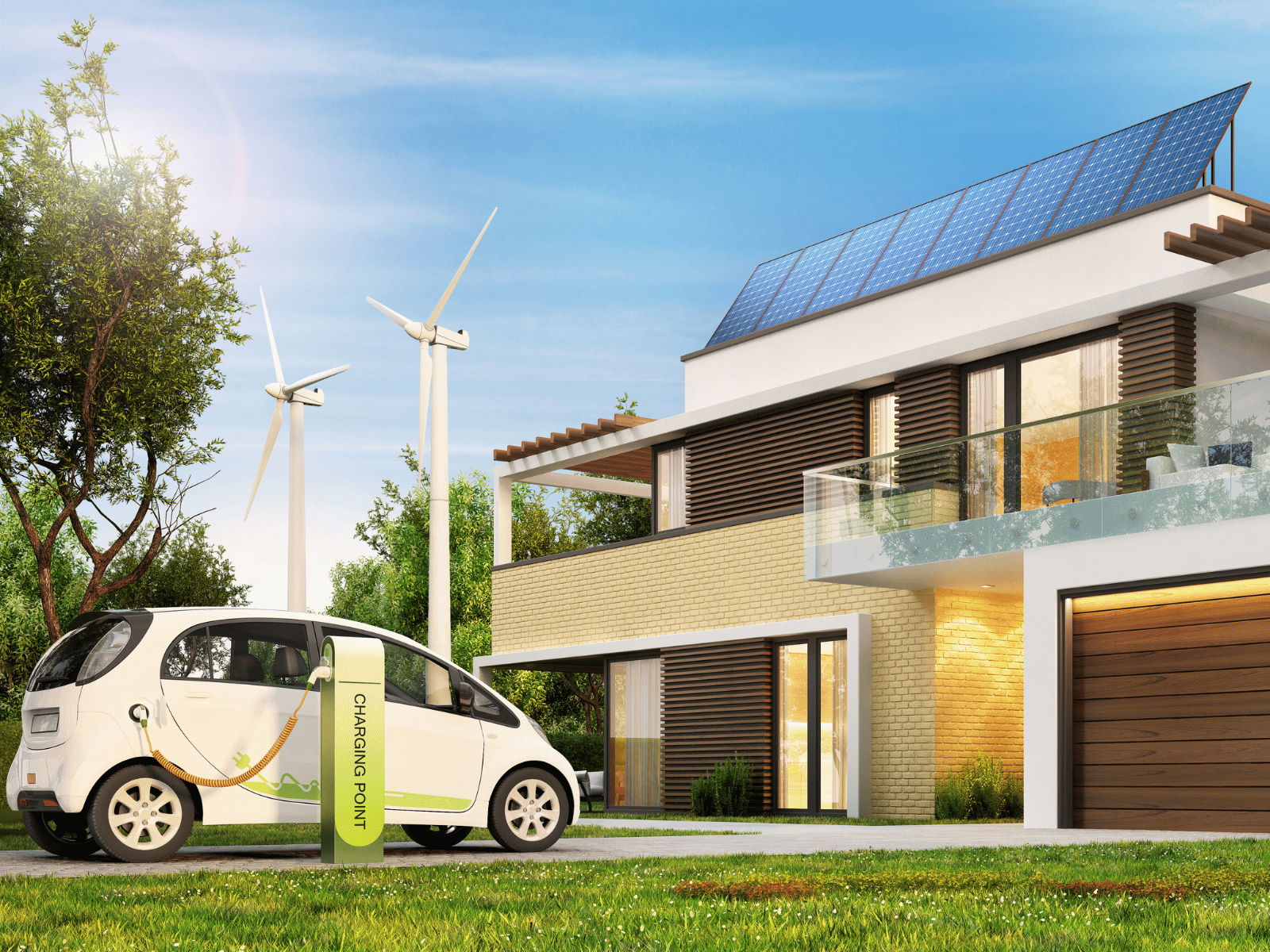Solar energy is a clean and renewable source of power that works by converting sunlight into electricity using solar panels. Many people believe that solar panels are ineffective during winter, but this is not true. Even during the colder months, solar panels can still produce significant energy. This guide will explore how winter can be a productive time for solar energy and provide tips to maximize solar panel performance during this season.
How Solar Panels Perform During Winter
Solar Panel Efficiency in Cold Weather
Solar panels often perform better in colder temperatures. Unlike many electronic devices that might struggle in the cold, solar panels become more efficient as the temperature drops. When solar panels operate in colder conditions, they convert sunlight to electricity with less energy loss compared to hot conditions, leading to improved overall performance.
Cold weather reduces resistance in the solar cells, which allows more electricity to flow through the system. On bright, cold days, solar panels can outperform their efficiency during warmer seasons, making winter an effective time for generating solar power.
Sunlight Availability
Winter days are shorter, which means fewer daylight hours. However, the increase in efficiency during colder weather can help make up for the reduced sunlight. High-quality solar panels are designed to capture sunlight even during low-light conditions, such as early mornings or cloudy days.
While sunlight availability is reduced, proper system design and orientation can help offset these challenges. Panels positioned to face the sun more directly can still harness significant solar energy, ensuring steady output even during the winter season.
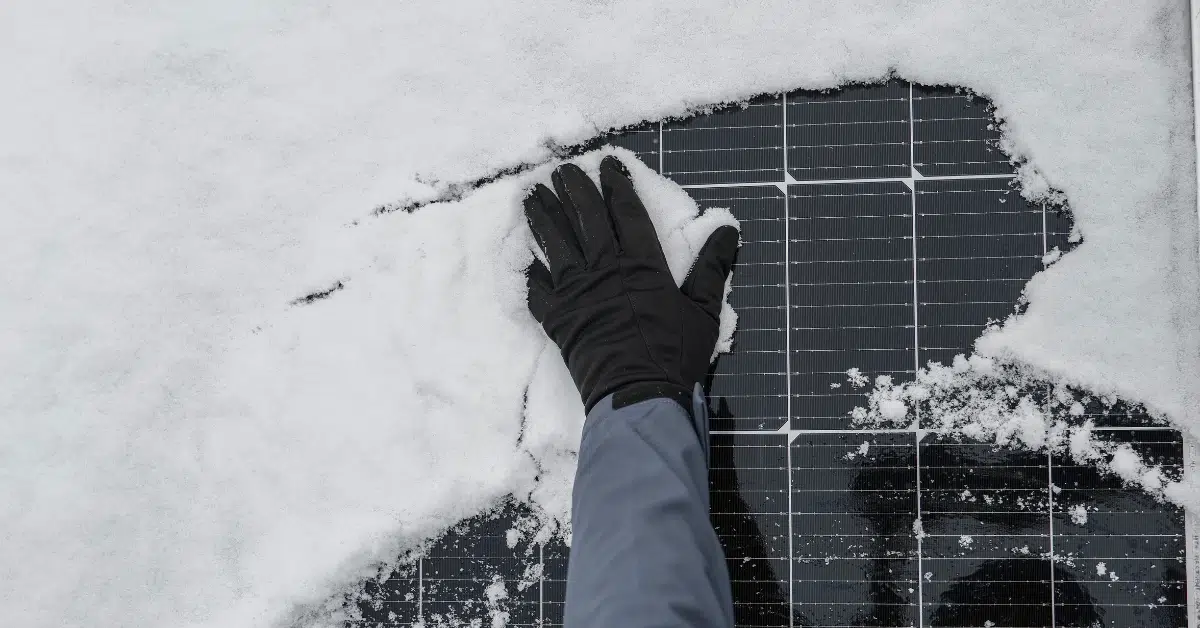
Challenges of Solar Energy in Winter
Snow Accumulation on Solar Panels
Snow can accumulate on solar panels, blocking sunlight and reducing energy production. However, panels are typically installed at an angle, which helps snow slide off more easily. To maximize winter energy production, it’s important to keep panels clear of snow. Using a soft-bristle brush or a roof rake can help remove snow without damaging the panels.
In addition, snow can sometimes reflect sunlight, which can actually boost energy production once the panels are clear. Ensuring panels are cleaned promptly after heavy snowfall can help take advantage of this reflective effect.
Reduced Sunlight and Cloud Coverage
Winter often brings cloudy days, which can reduce the amount of sunlight reaching the panels. However, solar panels are still capable of converting diffuse light—light scattered by clouds—into electricity. While output may be reduced on cloudy days, modern solar panels are efficient enough to generate electricity even in low-light conditions.
Investing in high-efficiency panels can help mitigate the effects of cloud coverage, allowing homeowners to produce consistent energy even during less favorable weather. Battery storage systems can also store excess energy produced on sunny days for use during cloudy periods.
Tips to Maximize Solar Energy Production in Winter
Proper Maintenance
Maintaining your solar panels is key to keeping them productive during winter. Regularly cleaning snow, ice, and debris off the panels ensures they get the maximum sunlight exposure.
Inspections are also important during winter. Checking for any damage or wear on the panels, wiring, or mounting systems can help prevent issues that could affect energy production. Addressing minor problems early can ensure consistent energy output throughout the winter.
Panel Angle Optimization
Adjusting the tilt of solar panels to a steeper angle during winter helps capture more sunlight. The low winter sun requires panels to be at an optimal angle to receive the best exposure.
A steeper tilt not only helps maximize sunlight exposure but also allows snow to slide off more easily, reducing the amount of time panels are covered. Consulting with a solar professional to determine the ideal angle for your location can make a significant difference in winter energy production.
Battery Storage Solutions
One effective strategy to ensure consistent energy availability in winter is to use a battery storage system. Batteries can store excess energy produced during sunnier periods, which can then be used during overcast or snowy days. This helps homeowners maintain a steady energy supply even when sunlight is limited (EnergySage).
Modern battery systems are becoming increasingly efficient and affordable, making them a practical addition to solar panel setups. By using stored energy, homeowners can reduce reliance on the grid and ensure they continue to benefit from solar power even during challenging winter conditions.
Benefits of Winter Solar Energy
Potential Cost Savings from Winter Solar Energy
Solar energy can help reduce electricity bills, even in winter. The increased efficiency of solar panels in colder temperatures can still translate to substantial savings over time.
Winter energy demands are often higher due to heating needs, but solar energy can help offset these costs. By producing electricity during daylight hours, homeowners can reduce the amount of electricity they need to purchase from the grid, leading to lower utility bills.
Sustainable Energy Throughout the Year
Solar energy remains a sustainable option throughout the year, contributing to environmental goals and reducing reliance on fossil fuels. Using solar energy during winter means households continue to reduce their carbon footprint.
Year-round solar energy production also means a consistent reduction in greenhouse gas emissions. By investing in solar power, homeowners play a crucial role in supporting environmental sustainability, regardless of the season. The use of solar battery storage also enhances the ability to rely on clean energy throughout the year.
Solar panels can perform efficiently, even during winter. With proper maintenance, optimized positioning, and the right equipment, winter can be a productive season for solar energy production. The year-round benefits, including cost savings and sustainability, make solar energy a smart choice for homeowners. Contact a solar professional to learn more about maximizing your solar potential throughout the winter months.

